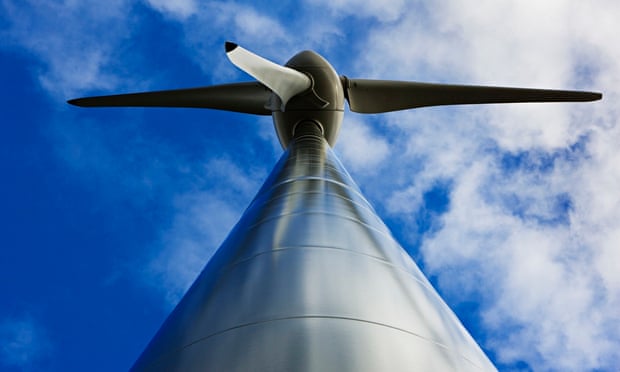Climate change is not just an environmental issue
The general election means 2015 is a critical year for Britain. It is also a critical year for the world on climate change. Within months of Britain voting, the UN is holding a summit in Paris to agree a binding global agreement to tackle climate change.
But there is a real danger that this great chance to achieve action is going to slip by, without the world even noticing. That might suit some politicians at home but it will be a disaster for our country and the world.
Over recent months the EU, the US and, most importantly, China, have all made substantial commitments to cut the growth of greenhouse gas emissions. They represent important progress but we need to challenge every country to be as ambitious as possible. Because even if agreement can be achieved, it may not be enough to address the scale of the challenge we face. This would make it all the more likely that we will not do what is necessary to meet our obligations to future generations.
As the floods in Britain showed last year, this is an issue of national – as well as global – security. We must be guided by the science, which shows that emissions are higher than anticipated and some effects are coming through more quickly than foreseen.

'The next Labour government will commit Britain to making our electricity supply carbon free by 2030,' says Labour leader Ed Miliband. Photograph: Murdo Macleod
As the Intergovernmental Panel on Climate Change has said, if the world is to hold warming below 2C, global emissions need to peak not long after 2020 and then decline rapidly to reach net zero in the second half of this century. The weaker the action now, the more rapid and costly the reductions will need to be later. I do not want to see Britain or any country having to adopt crisis measures to halt the slide into global catastrophe because we missed this critical opportunity now.
A strong coalition for a weak deal will fail us all. So this is the agreement I will work for if I am prime minister:
• Ambitious emissions targets for all countries, reviewed every five years, based on a scientific assessment of the progress towards the 2C goal.
• A goal of net zero global emissions in the second half of this century.
• Transparent, universal rules for measuring, verifying and reporting emissions with all countries adopting climate change adaptation plans.
• An equitable deal in which richer countries provide support to poorer nations in their efforts to combat climate change.
To support me in this task I have asked John Prescott to advise me on how we can achieve the best deal at the summit in Paris. His abilities and experience, as one of the architects of the Kyoto protocol in 1997, must be used at this critical time for our future and there is no one better than John at bashing heads together to get a deal.
I also hope the millions of British people who care about climate change will join with others across the world to hold governments and political leaders including me, to account. This moment of opportunity must not be missed.
Climate change has never been just an environmental issue. It affects the economy, migration and living standards too. There is no trade-off between tackling climate change and building an economy in which working families succeed. Indeed, success on one will help us achieve the other.
Before the last election, the UK was a world leader in the transition to a green economy, with strong growth and investment in offshore wind turbine and nuclear power equipment manufacture. This government, which has long abandoned the pretence of being the “greenest ever”, has cut and delayed investment in green technology. While Tory MPs flirt with climate change denial, confused and contradictory signals on energy policy from ministers have caused deep uncertainty for investors.
If Labour wins in May, we will put that right. The last Labour government was the first in the world to put carbon targets into law. The next Labour government will commit Britain to making our electricity supply carbon free by 2030.
The last Labour government helped to create new markets for thousands of British companies and more than a million new jobs in the green sector.
The next Labour government will give business certainty to invest so we can create another million such jobs over the next decade.
All this will be a part of Labour’s better plan for working families: resetting the energy market to keep household bills as low as possible, creating new high-skill, high-wage jobs that can help to pay down the deficit, and investing in green technology that can power Britain’s economy into the future.
I know the challenge of tackling climate change is not just a global responsibility, it is an economic necessity. It is the single most important thing we can do for our children and our grandchildren. And it will be one of the highest priorities in the government I lead.
Comments